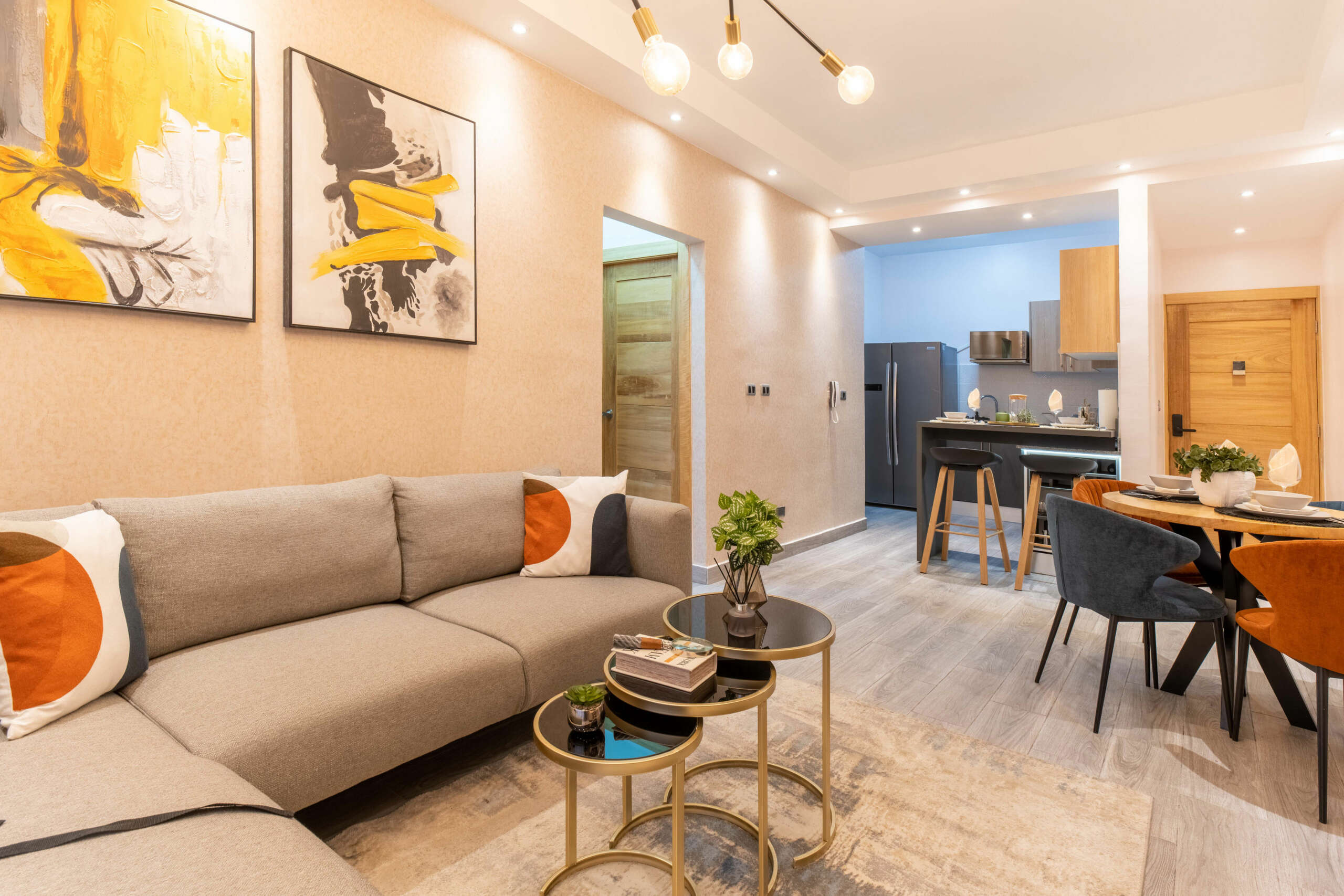How to Start an Airbnb Business in 8 Easy Steps

Did you know you can turn your extra space into a profitable business? With Airbnb, it’s easier than ever to start earning income by renting out a room, apartment, or even an entire house. Whether you have a spare bedroom or an entire property, hosting on Airbnb can be a rewarding experience. But, like any business venture, it requires planning and preparation.
In this article, we’ll walk you through 8 easy steps for how to start an Airbnb business. Ready to become a host? Let’s dive in!
Table of Contents
1. Evaluate Your Property and Decide What to Rent
Before you start, take a close look at your property. Are you renting out a spare room, an entire apartment, or a vacation home? Airbnb offers flexibility for all types of spaces. But each type of listing comes with its own requirements.
- Private Room: Renting out a single room allows you to stay in the property while guests rent a space.
- Entire Home/Apartment: This option allows you to rent out the entire property when you’re away.
- Shared Spaces: You can also rent out common areas like a living room or kitchen if you’re comfortable with it.
Think about what you’re comfortable offering and what your target guests might be looking for.
Important Tip for Renters:
If you don’t own your property or are renting, it’s crucial to check permissions, such as your lease agreement and any Homeowners Association (HOA) rules before listing your space on Airbnb. Some landlords and HOAs have strict rules against subletting or short-term rentals. Violating these rules could result in fines or even eviction, so make sure you’re clear on the guidelines.
2. Check Local Laws and Regulations
Before listing your property, it’s crucial to research local laws and regulations. Some cities have specific rules for short-term rentals, including permits, taxes, and zoning restrictions.
- Zoning Laws: Certain areas may not allow short-term rentals, or they may have restrictions about the type of property that can be rented.
- Taxes: You’ll likely need to pay taxes on the income you earn from Airbnb rentals. Some cities require hosts to collect local occupancy taxes.
- Permits: In some locations, you may need a special permit to host guests.
Make sure to check these requirements to avoid fines or legal issues down the line.
3. Create a Detailed and Attractive Listing
Once you’re ready, creating your Airbnb listing is one of the most important steps. Here’s how to make yours stand out:
- Title & Description: Write a catchy title and a detailed description of your property. Be honest, clear, and highlight the unique features of your space. If you’re offering amenities like Wi-Fi, a hot tub, or proximity to tourist attractions, mention them!
- Photos: High-quality, well-lit photos can make all the difference. Make sure to showcase your space in the best light. Include pictures of every room, the exterior, and any amenities guests can use.
- Pricing: Research similar properties in your area to set competitive pricing. You can adjust prices based on demand, season, or even offer discounts for longer stays.
Be honest and transparent in your listing to set the right expectations for potential guests.
4. Prepare Your Space for Guests
You want your guests to feel at home, so make sure your space is clean, well-maintained, and comfortable. Here’s a checklist to get your property guest-ready:
- Deep Cleaning: Make sure your space is spotless. If needed, consider hiring a professional cleaning service.
- Essentials: Stock your space with essentials like fresh linens, towels, toiletries, and kitchen supplies. Guests appreciate thoughtful touches like extra blankets or snacks.
- Safety Features: Install smoke detectors, carbon monoxide detectors, and fire extinguishers. Ensure your property meets all safety standards.
Your goal is to create a comfortable, inviting space that will make guests want to return—and leave positive reviews!
5. Set Clear House Rules
Setting expectations for guests is key to having a smooth experience. Create a list of house rules that clearly outline what is and isn’t allowed. Common rules include:
- No smoking or parties
- Quiet hours after 10 PM
- Check-in/check-out times
- Pet policies
Clear house rules will help prevent misunderstandings and ensure that both you and your guests have a positive experience.
6. Market Your Listing and Build Your Reputation
Once your listing is live, it’s time to market it! Here’s how to attract guests:
- Optimize Your Listing: Use keywords in your title and description that potential guests are likely to search for. Include details about local attractions and highlight any unique features your property offers.
- Respond Quickly: Airbnb rewards hosts who respond quickly to booking inquiries. Make sure to respond promptly to guest questions and booking requests.
- Encourage Reviews: After your guests check out, ask them to leave a review. Positive reviews build your reputation and can help attract future guests.
The more positive reviews you get, the higher your ranking will be on Airbnb’s search results, which means more bookings.
7. Create a Seamless Check-In and Check-Out Process
Your check-in and check-out process should be smooth and easy for your guests. Consider offering self-check-in with a lockbox or keyless entry to make arrivals hassle-free.
- Instructions: Leave clear instructions for guests on how to get to your property, where to find keys, and any other important information they need.
- Personal Touch: While automated check-ins are convenient, offering a warm welcome message or personal note can make a great impression.
- Check-Out Instructions: Be sure to provide guests with check-out instructions, including where to leave the keys, whether they need to take out the trash, or any other housekeeping requests.
A smooth experience will lead to positive reviews and repeat bookings!
8. Manage Your Airbnb Business Efficiently
Managing an Airbnb business can be time-consuming, especially as you get more bookings. Consider these tips for efficient management:
- Automate Communications: Use Airbnb’s messaging system to set up automated messages for booking confirmations, check-in instructions, and check-out reminders.
- Pricing Tools: Consider using Airbnb’s pricing tools can help increase occupancy rates by adjusting rates based on demand, seasonality, or last-minute bookings.
- Hire Help: As your business grows, consider hiring a cleaning service or property manager to handle guest turnovers and maintain the property.
By staying organized and using the right tools, you’ll be able to manage your Airbnb business effectively and with less stress.
Final Thoughts: Starting Your Airbnb Business
Starting an Airbnb business can be an exciting and profitable venture. By following these 8 steps, you’ll be well on your way to becoming a successful host. Remember, success takes time and effort, so be patient, keep learning, and adapt to your guests’ needs.
Important Reminder: If you’re renting or have restrictions like an HOA, make sure to double-check the rules before you start. This can help you avoid potential issues and ensure you’re operating within the guidelines.
FAQs
1. Do I need to own the property to start an Airbnb business?
No, you don’t need to own the property. If you’re renting, you can still list your space on Airbnb, but you must check your lease agreement and local regulations. Some landlords or property managers may have rules against subletting, and certain HOAs may prohibit short-term rentals. Always get permission before listing to avoid breaking any rules.
2. How much can I earn from renting out my property on Airbnb?
Your earnings depend on various factors, such as the location of your property, its size, amenities, and how often you rent it out. On average, hosts in popular cities can earn anywhere from $500 to $2,000+ per month. However, earnings can fluctuate based on demand, seasonality, and your pricing strategy.
3. What do I need to include in my Airbnb listing?
Your listing should include:
– A clear and catchy title that highlights your property’s best features.
– High-quality photos showing every room and key amenities.
– A detailed description of the space, location, and any special features.
– Pricing that is competitive but reflects the value of your space.
– House rules to manage guest expectations and ensure a smooth stay.
4. How do I handle guest complaints or issues?
Handling guest complaints professionally is key to maintaining a good reputation. Respond quickly and politely to any concerns, and try to resolve the issue calmly. If the situation escalates, Airbnb has a Resolution Center that can help mediate between hosts and guests. Always keep your communication friendly and professional.
5. Do I need to pay taxes on Airbnb income?
Yes, you’ll need to pay taxes on your Airbnb income. In many locations, you are required to report your rental earnings to the IRS or your local tax authority. Airbnb provides hosts with a 1099-K form if they earn over a certain threshold. Be sure to track your earnings and expenses and consult a tax professional to ensure you’re meeting all legal requirements.
Starting a Business?
Top 10 Most Successful Businesses to Start
Explore the most profitable businesses to start and scale in 2024.
🏛️How to Open an LLC: Step-by-Step Guide
Learn the process of forming an LLC and protecting your business.
💼Guide to Becoming a Solopreneur
Discover how to start and run a successful business on your own.






